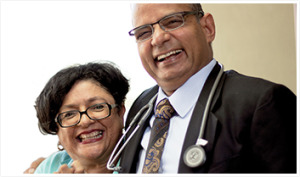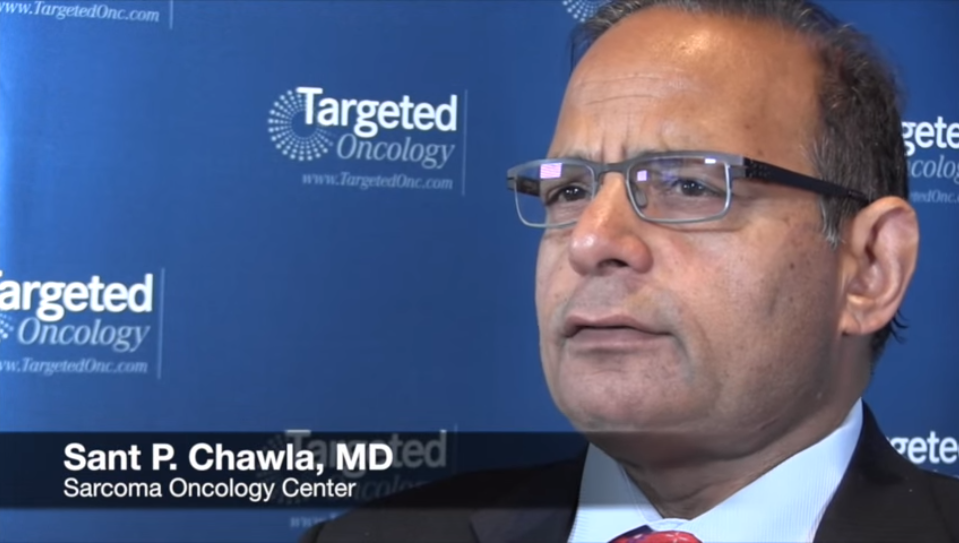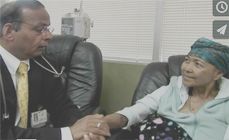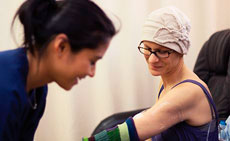Fibrohistiocytic Sarcoma Explained
Fibrohistiocytic subtypes occur in the fibrous tissues of tendons and ligaments. Unlike other soft tissue sarcomas that occur almost anywhere in the body, this disease tends to originate only in the arms, legs, or trunk and while it is more common in children and young adults, the cancer can occur at any age.
Sarcomas are a rare form of cancer and it takes exceptional oncologists familiar with the disease to fight it. The team of oncologists at the Sarcoma Oncology Center are experts in the diagnosis and treatment of all sarcoma subtypes. We are considered one of the best sarcoma practitioners worldwide with the ability to develop the most advanced patient-centric treatment available, with a strong emphasis on limb preservation. Patients who come to us for assistance receive personal and individualized attention from the most prestigious oncologists worldwide who are specialists in sarcoma and its numerous forms.
“If you ever get a second chance for something, you’ve got to go all the way.”
Lance Armstrong, LIVESTRONG Foundation
With Fibrohistiocytic sarcomas, the subtypes include:
- Giant cell tumors (GCT) of tendon sheath – very rare connective tissue tumors that usually arise near the knee joint. They are initially removable with surgery but have a high risk of recurrence. Occasionally, GCT of tendon sheath can become more aggressive and travel to other organs such as the lungs.
- Plexiform Fibrohistiocytic Tumor – rare skin tumor that usually involves the upper limbs as a slow-growing painless mass and occurs primarily in children and young adults. Tumor can exhibit a high recurrence rate but rarely metastasize (spread).
- Undifferentiated Pleomorphic Sarcoma – originating cell is unclear, but this type of tumor affects the leg, trunk, or arm. It appears more commonly in the lungs and affects people over 50 years of age.
Because sarcomas develop in flexible, elastic tissues or deep spaces in the body, the tumor can often easily push normal tissue out of its way as it grows. Therefore, a sarcoma may grow quite large before it causes symptoms.
To learn more about cancer treatment, visit WebMD.com.
Fibrohistiocytic Sarcoma Symptoms
Soft tissue sarcomas are hard to spot because they can grow anywhere in the body but rarely cause symptoms in the early stages. Most often, the first sign is a painless lump or swelling. As the lump gets bigger, it might press against nerves or muscles and cause discomfort or cause breathing problems, or both. There are no tests that can find these tumors before they cause noticeable.
It is critical to speak with a physician about any lumps that are painful or swollen. An oncologist will ask about symptoms to help identify the cause of the problem. Questions will be asked about the duration and frequency of symptoms.
Treatment for Fibrohistiocytic Sarcoma
 At the Sarcoma Oncology Center, our expert oncologists are actively involved in clinical trials of the newest drugs and work with a team of experts to develop the best treatment plan for each individual.
At the Sarcoma Oncology Center, our expert oncologists are actively involved in clinical trials of the newest drugs and work with a team of experts to develop the best treatment plan for each individual.
The Center develops a treatment plan based on the grade and stage of the tumor, prior treatments (if any), progress of the cancer, biopsy analysis and other individualized factors. Sarcomas are a complex form of cancer requiring team-minded, multi-modal, individualized treatment plans. We collaborate with prominent pathologists, radiologists, surgeons, and radiation oncologists from USC, Stanford, UCLA, M.D. Anderson, St. John’s and Cedars Sinai to develop and implement the most effective multi-modal treatment plan for each case. The oncologists at the Sarcoma Oncology Center lead in sarcoma research worldwide and are recognized as pioneers in advanced sarcoma clinical research trials. The oncologists at the Center have access to the most novel cancer drugs at their fingertips and can go beyond standard care for cancer than other treatment centers, especially regarding our emphasis on limb preservation.
Contact the Sarcoma Experts for More Information
Sarcoma Oncology Center considers the physical and emotional well-being of each individual and provides an expert team of medical specialists. Please contact our center at 310-552-9999 to schedule a consultation with one of our physicians.
Next, read about Fibroblastic/Myofibroblastic Sarcoma.





